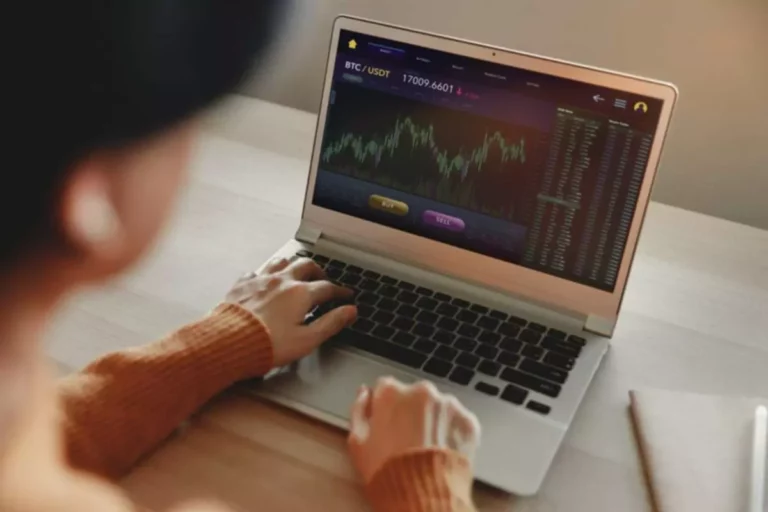Content
This implies that the performance of commodities during economic recessions is the opposite of stocks or bonds. There are no “safe” investments, and there is always the risk of loss when investing. With commodities, choosing one that is more insulated from fluctuations in pricing can be beneficial, but this can be difficult to https://www.xcritical.com/ predict. Gold and some precious metals may fare well when inflation rises, or there’s increased uncertainty in the markets about interest rates.
Is Bitcoin a Security or a Commodity?

Relatedly, traders must fulfill routine reporting on their activities above a specified volume threshold, disclosing insightful data such as account identity, controlled accounts and opening or closing positions. Together, strict position limits and trade reporting offer crucial transparency that aids price discovery while curtailing the potential abuse of commodities derivatives. While nuances exist, regulators like the CFTC and SEC play complementary roles by bringing long-established investor protection principles to both traditional and modern markets under their purview. Commodities largely trade through futures on centralized exchanges or over-the-counter directly between suppliers and commercial consumers. is bitcoin a security or commodity Securities tend to enjoy more widespread exchange availability and near-continuous price discovery. Securities, on the other hand, grant holders the right to periodic benefits like dividends, coupons, principal repayments and potential profit shares.

Commodities Vs. Securities: Are cryptocurrencies a commodity or security?
The SEC has also sought enforcement against issuers of cryptocurrencies and non-fungible tokens. While such products can make commodity investing more accessible to investors, commodity funds and ETPs can be highly volatile, and performance may not track that of Cryptocurrency exchange the underlying commodity. This volatility and risk can be further amplified if the products offer leveraged or inverse exposure. Commodity futures are derivative contracts in which the purchaser agrees to buy or sell a specific quantity of a physical commodity at a specified price on a particular date in the future.
Create a Free Account and Ask Any Financial Question
Commodities are tangible goods, while securities represent ownership in a company, such as government-issued bonds. For instance, when you buy oil, wheat, corn, or gold, you invest in a commodity. Commodity prices typically rise when inflation accelerates, which is why investors often flock to them for their protection during times of increasing inflation—particularly when it is unexpected. So, commodity demand increases because investors flock to them, raising their prices. This causes commodities to often serve as a hedge against a currency’s decreased buying power when the inflation rate increases. Commodity prices are extremely volatile and can be affected by unforeseeable factors such as weather conditions or geopolitical events.
- In essence, a company may deliver property rights, in the form of cash or other securities, either at inception or in default, to pay its debt or other obligation to another entity.
- These regulatory attempts laid bare the fundamental tension in commodity markets.
- Adam received his master’s in economics from The New School for Social Research and his Ph.D. from the University of Wisconsin-Madison in sociology.
- Balancing decentralisation with regulatory oversight is essential to maintain market integrity and investor protection in the digital asset space.
- Publicly traded securities are listed on stock exchanges, where issuers can seek security listings and attract investors by ensuring a liquid and regulated market in which to trade.
- A debt security represents borrowed money that must be repaid, with terms that stipulate the size of the loan, interest rate, and maturity or renewal date.
- ETFs provide more diversification and lower risks, while futures are more speculative, and the risks are higher especially when margin is used.
Commodities vs Securities: similarities, differences, and how Crypto can be classified
Supply and demand play an integral role in determining how commodities are valued. When supply exceeds demand, e.g. if there were a drop-off in the demand for copper, the price of that commodity would also likely drop. But if a new technology like AI emerges, creating demand for precious metals, that could drive some commodities prices up. This is quite different from traditional investments like stocks and bonds, where the quality of one stock can vary widely from another; or where one bond may get a triple-A rating and another is rated as junk. However, while this can magnify profits, it also increases the risk of considerable losses. Therefore, futures trading requires careful risk management and is generally more suitable for experienced investors.
However, mutual funds and ETPs offering exposure to commodities or commodity futures are typically registered as securities and so are eligible to be covered by SIPC. Some ETFs hold physical commodities, dealing with precious metals like gold. However, in most cases, the fund managers do not purchase the actual products either. Instead, they invest in companies dealing with a particular commodity, such as oil or gold, or futures contracts.
If you wish to speculate on commodity prices and do not have a broker who trades futures contracts, you may have to open a new brokerage account. You will likely need to fill out a form acknowledging that you understand the risks of futures trading. Futures contracts require a different minimum deposit depending on the broker, and the value of your account will increase or decrease with the value of the contract. If the value of the contract decreases, you may be subject to a margin call and required to deposit more money into your account. Securities are typically traded on stock exchanges or over-the-counter markets, and their prices are influenced by company performance, economic factors, and investor sentiment.

These could range from oil and natural gas to wheat, corn, or precious metals like gold or silver. Securities are readily transferable, making them desirable investment vehicles. Shares of stock, for example, can be bought and sold on stock exchanges, and ownership can be transferred with relative ease.
Meanwhile, securities constitute financial assets such as stocks, bonds and funds representing ownership stakes and rights in an underlying entity. However, the distinction between commodities and securities can sometimes blur, especially with the advent of digital assets and cryptocurrencies. Some cryptocurrencies have been classified as securities by regulators, which has implications for regulatory oversight. On the other hand, many futures-tracking commodity-linked ETPs are structured as commodity pools or ETNs. This is also true for ETPs tracking the performance of precious metals like gold, which often invest directly in the physical metal and store it in vaults.
There are also well-developed derivatives markets whereby you can buy contracts on such commodities (e.g., oil forwards, wheat or gold futures, and natural gas options). The decision between investing in commodities and securities depends largely on your investment goals, risk tolerance, and market outlook. If you’re looking for a way to hedge against inflation or protect your portfolio during periods of economic uncertainty, commodities like gold or oil may offer the protection you’re seeking.
The exchanges brought badly needed transparency and structure to chaotic markets where “corners” (as in “cornering” the market) weren’t banned until 1868. Shady operations dubbed “bucket shops” preyed on the inexperienced, leading to losses and a lack of faith in the markets. In response, states enacted a patchwork of legislation, including some that banned commodity derivatives (options and futures) altogether.
Still, in the turbulent years moving into the 1930s, the American commodity markets had many well-publicized scandals. Speculators fueled wild price swings that threatened to crush farmers and starve those already facing the ravages of the Great Depression. Its most tangible result was establishing the Commodity Exchange Commission (CEC) as an independent agency under the Department of Agriculture. The law established reporting requirements and attempted to limit the massive price fluctuations of the era by mandating that all grain futures be traded on regulated futures exchanges. Supreme Court, is used to determine whether a transaction qualifies as an “investment contract” and thus a security. Cryptocurrencies and token offerings are assessed against the criteria of the Howey Test to determine their classification under securities laws.
Securities serve as attractive instruments for both investment and speculation. From a long-term investment perspective, securities such as stocks and bonds offer returns through capital appreciation and income generation. In the context of Crypto trading, it’s crucial to distinguish between Commodity vs. Security. Securities represent ownership in a company, while Commodities are tangible goods or financial instruments traded on exchanges. Cryptocurrencies are often classified as Commodities rather than Securities by regulatory bodies like the SEC (the Securities and Exchange Commission) and the Commodity Futures Trading Commission (CFTC).
Comentários